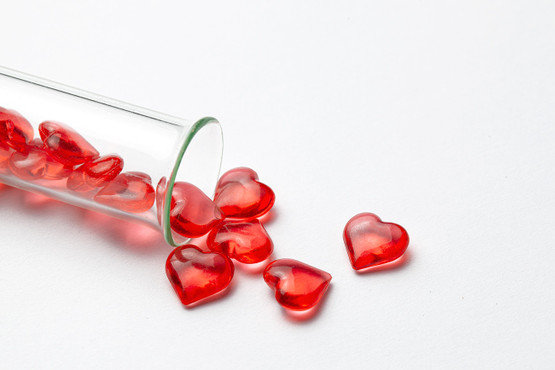THE SCIENCE OF LOVE
25th Oct 2022
Think of the word ‘love’ and it’s likely to bring to mind some if not all of the following; romance, partnership, devotion, happiness (and hurt), affection, dedication and care. Today, love is everywhere. It’s the end goal in every rom-com, the subject of thousands of novels and the inspiration behind some of our favorite songs, plays and quotes. However, there’s even more to love than we might think. While love carries many definitions, studies have shown that love isn’t simply a basic instinct and emotion but something much more complex that can be explained with chemistry and has tangible effects on our physical wellbeing too.
Falling in Love
When we’re at the initial stages of falling for someone, we might experience very physical sensations such as flushed cheeks, a racing heart and maybe a loss for words - but on the inside, a biological process is also at play that involves a cocktail of chemicals. When we are falling in love or in love, neurochemicals like dopamine and oxytocin are in higher production and affect our brain, which has significant effects on physical sensations as well. In fact, studies have shown that it can affect anything from our levels of blood pressure, to how we deal with the physical aspects of anxiety, and even symptoms of pain. Here’s how:
1. Lowers Blood Pressure
High blood pressure is usually affected by how much you exercise, your diet or your age and it can be reduced by taking medication or adapting your lifestyle. However, love can also be a factor in reducing your risks. A study by the US Department of Health Services found a relationship between physical health and marriage that showed married couples were at a lower risk for cardiovascular disease. The reason for this is that love can have a positive effect on our autonomic nervous system, which is responsible for regulating body functions like our heart rate, digestive system, respiratory rate and our fight or flight response.
2. Reduces Stress
When you initially fall in love stress levels spike; the levels of dopamine, a neurotransmitter that is closely connected with our feelings of pleasure and happiness, gradually increase which makes you feel good, but there is also a surge of the stress hormone cortisol and a drop in serotonin, which is a mood stabilizer. These rises and falls are accountable for our sometimes ‘crazy’ behaviour or feelings when we first fall in love, such as passion, obsession or nervousness. Once you settle in to your relationship, dopamine levels usually stay high and the rest of your hormones balance out, which together helps reduce stress.
3. Curbs Anxiety
Similar to stress, love can also reduce feelings of anxiety. Anxiety is a huge source of inflammation in our bodies and can actually lead to physical unrest like stomach aches, headaches, fatigue and a raised heart rate. We can also feel anxious, and negative hormones like adrenaline and cortisol spike. According to a 2014 study in Neuroendocrinology Letters, when we are in a partnership, physiological changes occur in our stress response systems that curb feelings of anxiety and stress.
4. Reduces Physical Pain
It may not be as accessible as a pain killer but according to a study published in 2010 in PLOS ONE, being in love can help ease feelings of pain. In the study, patients experiencing physical pain felt relief when shown imagery of their loved one - and just as our bodies deal more effectively with stress when we’re in love, the reward center in the brain releases dopamine to help us feel good and to cope with pain.
5. Feels Addictive
We’ve all heard of the term ‘addicted to love’ but in fact, it’s based on more than just a feeling. Intense romance can often come with symptoms similar to addiction – euphoria, craving and dependence – and brain scans have shown it can be linked to drug-addiction-like activity in the brain’s reward centres where we feel a reliance or need for more dopamine. In a 2017 study, love addiction was compared to appetites – “they are felt needs that can be temporarily satisfied, but which become urgent and distracting if one abstains from fulfilling them for too long.” The moral here is: Don’t underestimate the power of love!
Delfina Forstmann is a skincare fanatic and a contributing writer for Doctor's Notes. She has worked closely with Team Sturm on product copy and social engagement giving her an inside understanding to Dr. Barbara Sturm’s unique approach to skincare.











